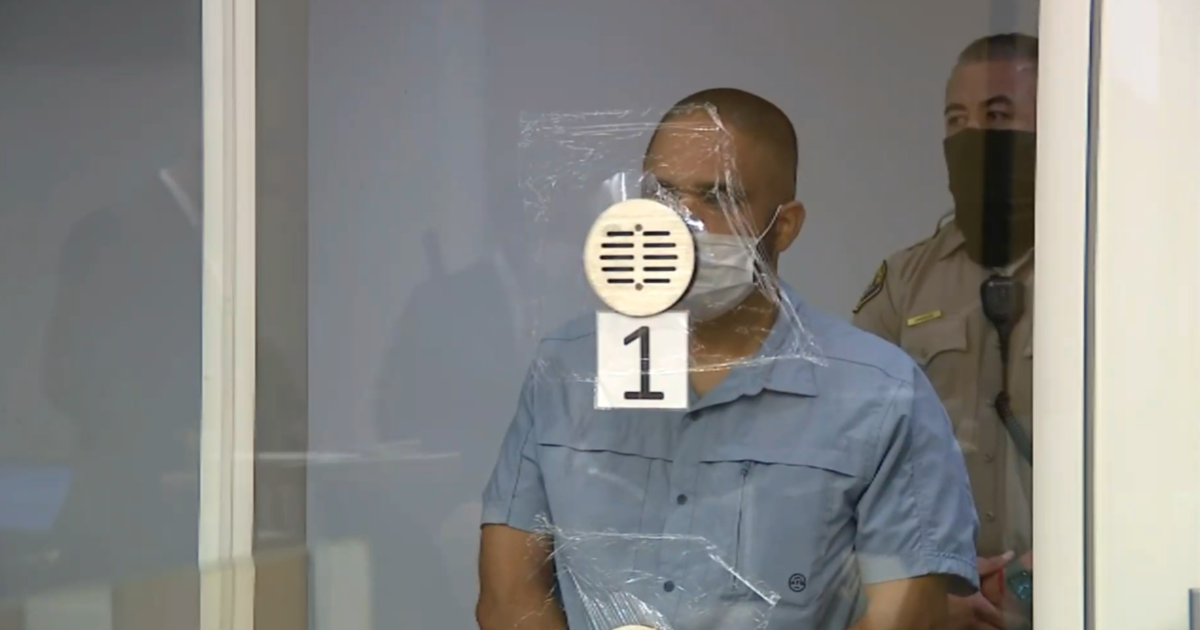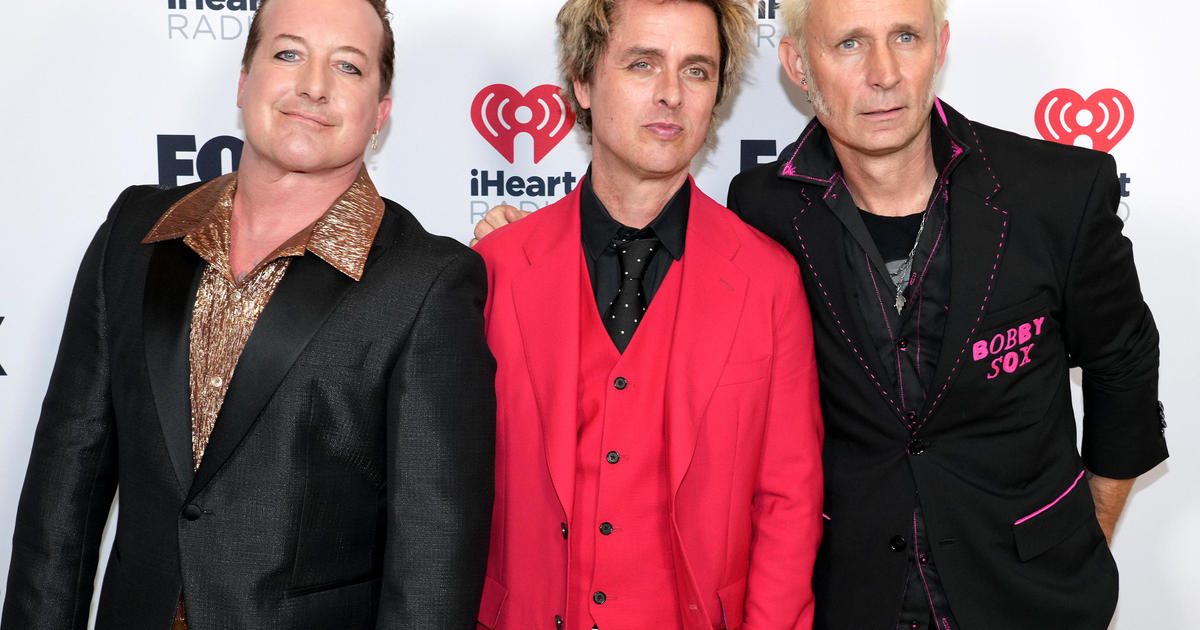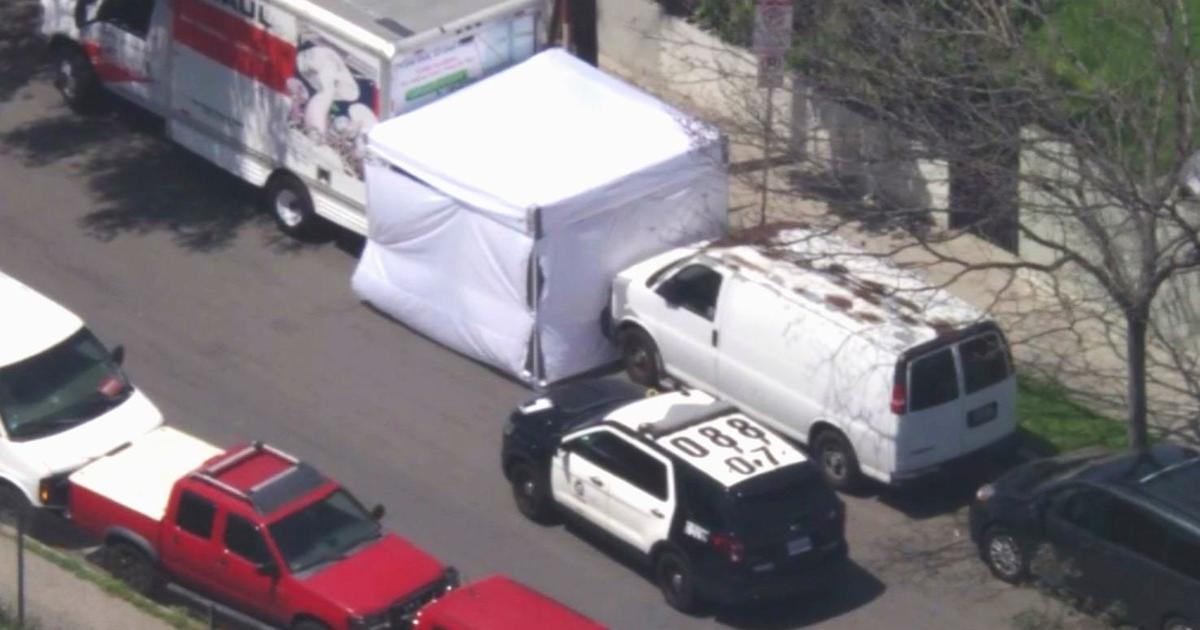Jurors To Begin Deliberations In Conrad Murray Trial Friday
LOS ANGELES (CBS) — Closing arguments concluded Thursday in the involuntary manslaughter trial of Michael Jackson's personal physician, Dr. Conrad Murray.
After Los Angeles Superior Court Judge Michael Pastor read jurors their final instructions, he ordered the jurors to begin deliberations Friday morning.
Prosecutors told jurors that Murray acted with criminal negligence in his treatment of the pop superstar by repeatedly giving him a powerful anesthetic in his bedroom, violating a "hallowed" doctor- patient relationship in the name of money and ultimately killing the entertainer.
An attorney for Murray, however, insisted that prosecutors, during six weeks of trial, "have absolutely failed to prove a crime."
"I told you (in opening statements) that we would not be disputing negligence," defense attorney Edward Chernoff told jurors during his closing argument. "We would not be telling you that Dr. Murray never made any mistakes. ... But this case that you're deciding, it isn't a medical board hearing. This isn't a civil lawsuit. This isn't about money. It's about liberty.
"... For a crime to be proven, you also have to show ... that Dr. Murray actually killed Michael Jackson," he said.
Jurors got the case just after 4 p.m. and will return to court Friday morning to begin deliberating.
The 58-year-old cardiologist faces up to four years in prison if convicted of an involuntary manslaughter charge stemming from Jackson's death on June 25, 2009, at age 50 from an overdose of the anesthetic propofol.
The evidence "is abundantly clear that Conrad Murray acted with criminal negligence, that Conrad Murray caused the death of Michael Jackson, that Conrad Murray left Prince, Paris and Blanket without a father," Deputy District Attorney David Walgren told the seven-man, five-woman jury. "For them, this case doesn't end today or tomorrow or the next day. For Michael's children, this case will go on forever because they do not have a father. They do not have a father because of the actions of Conrad Murray."
Prosecutors allege Murray gave the singer a fatal intravenous dose of propofol, then spent about 45 minutes on the phone or sending emails instead of monitoring him. Jackson, who was in Los Angeles rehearsing for a series of 50 concerts in London dubbed "This Is It," died from acute propofol intoxication.
Defense attorneys insist that Jackson "self-administered" a fatal dose of propofol after Murray left the bedroom at Jackson's rented Holmby Hills estate.
Murray told police he only left Jackson's side for about two minutes to use the bathroom after giving the singer a 25-milligram dose of propofol that was slowly infused over three to five minutes beginning at about 10:40 a.m.
The prosecution presented telephone records showing calls made to and from Murray's two cellular phones in the hours leading up to Jackson's death, including a 32-minute call made by Murray to his Las Vegas office and an 11- minute call to Sade Anding, a Texas cocktail waitress who prosecutors believe was talking with Murray when he realized Jackson was not breathing.
Walgren said the telephone records included a 22-minute call at 9:23 a.m., although Murray told police that Jackson was still complaining about being unable to sleep as late as 10 a.m. The prosecutor questioned whether Murray had "left him there complaining" or whether it was more likely Jackson was already being infused with an intravenous drip of propofol by that time and had been "abandoned" by his doctor.
"Did Michael Jackson yell out for help? Did he gasp? Did he choke? ... We'll never know because of the neglect and negligence by Conrad Murray," Walgren said.
The prosecutor also blasted Murray's failure to immediately call 911, saying he ignored the most basic, common-sense thing people learn as children and delayed the arrival of help that could have saved Jackson's life. To drive home the point, Walgren showed jurors a videotaped clip of the defense's anesthesiology expert, Dr. Paul White, testifying that he wouldn't administer propofol in a home and that he thought Murray should have called 911 sooner.
Murray demonstrated "consciousness of guilt" by failing to tell paramedics and emergency room doctors that he had given the singer propofol, and only told police about the drug two days later because he thought investigators had already found the medication at the singer's home, Walgren said.
"Conrad Murray, in multiple instances, deceived, lied, obscured, but more importantly, Conrad Murray acted with criminal negligence. Conrad Murray looked out for himself and himself alone," the prosecutor said.
Walgren noted that two defense witnesses, Dr. Allan Metzger and nurse practitioner Cherilyn Lee, both testified that they refused Jackson's request for propofol or other intravenous sleep aids, saying it was too dangerous to be administered in a bedroom setting.
They refused "because they believe and acted in accordance with their belief that a doctor has an obligation ... to first do no harm to their patient," the prosecutor said.
The prosecutor said a defense expert's conclusion that Jackson had died after self-ingesting propofol was "junk science," telling jurors that White had once suggested that the singer swallowed the anesthetic, and then had to pick a new theory after that was debunked.
The prosecution's star witness, Dr. Steven Shafer, testified that he believed Jackson died while being given a "drip" of propofol that ran until all 1,000 milligrams in the bottle had been infused into the singer.
The prosecutor noted that Murray admitted to police during his June 27, 2009, interview that he had been giving Jackson 50-milligram doses of propofol followed by a drip on a nearly nightly basis. Jackson's doctor told detectives he had only given the singer a 25-milligram dose the day Jackson died -- in part because of other medications he had already given him.
Chernoff, however, said the prosecution had no proof that Murray had set up a propofol drip the day the singer died. He said that theory was based on the supposition that Murray had inserted a bottle of propofol in an IV bag, allowing the medication to drip into Jackson's system.
He said coroner's investigator Elissa Fleak said nothing about a bottle of propofol being found inside an IV bag at the Holmby Hills estate until 18 months after the singer's death.
"She talks about the lamp on the table, but never mentions a vial in a bag," he said. "... Eighteen months later, all of a sudden, there's a bottle in a bag. Eighteen months later. There's no notes of it. She just conveniently remembered."
The defense attorney also said a police detective who catalogued medical equipment found in Murray's medical bags at the home never saw a bottle of propofol in an IV bag.
"He made no notes of a vial in a bag, not one. Because he didn't see it, because it wasn't there," he said.
Chernoff also attacked the credibility of Jackson bodyguard Alberto Alvarez, saying he didn't tell police until two months after Jackson's death about his claim that Murray ordered him to collect medical vials and equipment from the singer's bedroom before calling 911.
Murray's attorney said Alvarez testified that he helped place Jackson's body on the floor of the bedroom, but a paramedic who responded to the scene said the singer's body was still on the bed when he arrived.
"Two months later, ... all of a sudden he didn't just call 911, he comforted the children, he tried to breathe life into Michael Jackson, he hid evidence for Dr. Murray. All of a sudden his story becomes monumentally more compelling and more valuable," Chernoff said, hinting that Alvarez was looking to capitalize financially from the case.
Chernoff argued that the most reasonable explanation for Jackson's death was that the singer self-administered the fatal dose of propofol. He added that the evidence supports Murray's statement to police -- that he gave Jackson a 25 mg dose of propofol.
"What they're really asking you to do is convict Dr. Murray for the actions of Michael Jackson," Chernoff said.
He later added, "If it were anybody else but Michael Jackson, anybody else, would this doctor be here today?"
Chernoff said it was insulting for the prosecution's cardiology expert, Dr. Alon Steinberg, to compare Jackson being given propofol and then left alone as "like leaving a baby that's sleeping on your kitchen countertop," and asked jurors whether his client was supposed to watch Jackson at all times to "save him from himself."
In a rebuttal argument that took just under a half-hour, Walgren said the doctor was on trial not because the case involved Michael Jackson, but "because of the actions and the failure to act by Conrad Murray."
"What Conrad Murray did has never been done before," the prosecutor said of the bedside administration of propofol.
He said the defense had blamed everyone "but Conrad Murray, poor Conrad Murray," including Jackson for being left alone in his bedroom.
"Conrad Murray is criminally liable for the death of Michael Jackson, not because it is Michael Jackson, but because Conrad Murray acted with criminal negligence," Walgren said. "He was a substantial factor in the death of Michael Jackson."
(©2011 CBS Local Media, a division of CBS Radio Inc. All Rights Reserved. This material may not be published, broadcast, rewritten, or redistributed. Wire services contributed to this report.)



